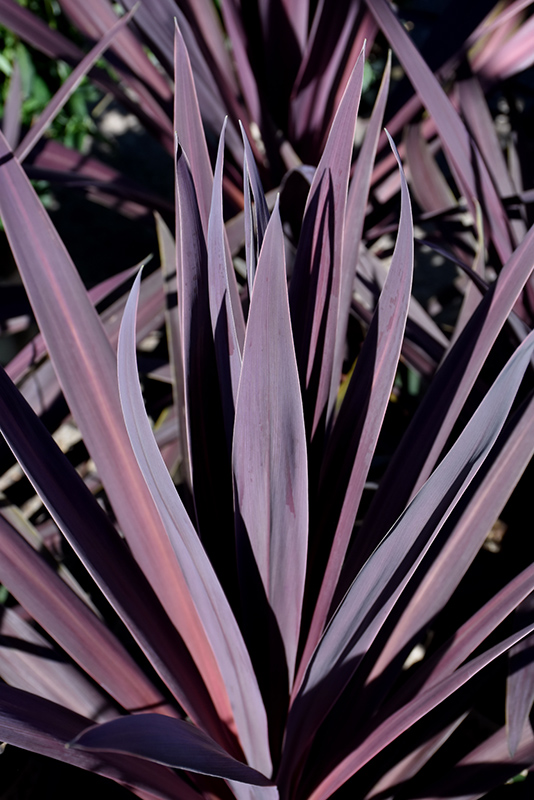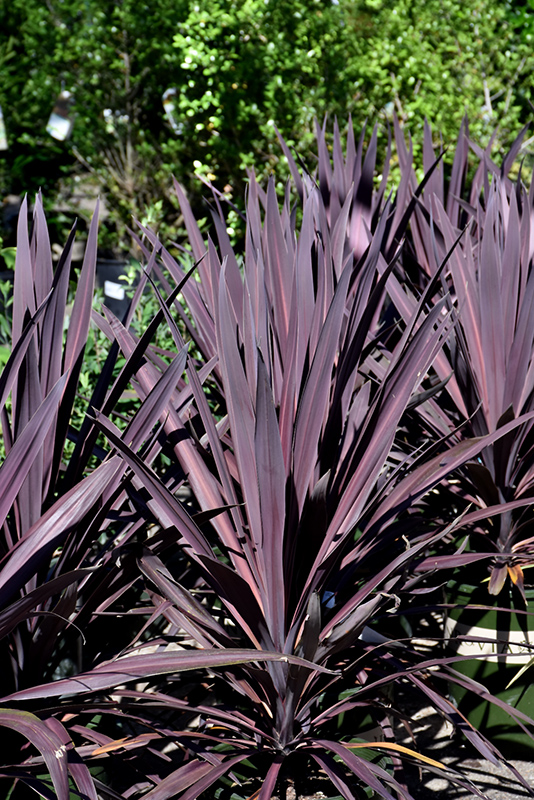Height: 10 feet
Spread: 5 feet
Sunlight:
![]()
![]()
Hardiness Zone: (annual)
Other Names: False Dracaena
Description:
Slender trunks feature 5 ft. wide burgundy-red, sword like foliage; eye-catching in poolside planters, containers, or garden beds; heat and drought tolerance once established; fragrant, white panicles bloom in early summer; adaptable as houseplant
Ornamental Features
Bauer's Cordyline is primarily valued in the landscape or garden for its ornamental upright and spreading habit of growth. Its attractive sword-like leaves remain burgundy in colour throughout the year.
Landscape Attributes
Bauer's Cordyline is an open multi-stemmed annual with an upright spreading habit of growth. Its relatively coarse texture can be used to stand it apart from other garden plants with finer foliage.
This plant will require occasional maintenance and upkeep, and should never be pruned except to remove any dieback, as it tends not to take pruning well. It has no significant negative characteristics.
Bauer's Cordyline is recommended for the following landscape applications;
- Accent
- Mass Planting
- General Garden Use
- Container Planting
Planting & Growing
Bauer's Cordyline will grow to be about 10 feet tall at maturity, with a spread of 5 feet. It tends to be leggy, with a typical clearance of 3 feet from the ground, and should be underplanted with lower-growing perennials. Although it's not a true annual, this plant can be expected to behave as an annual in our climate if left outdoors over the winter, usually needing replacement the following year. As such, gardeners should take into consideration that it will perform differently than it would in its native habitat.
This plant does best in full sun to partial shade. It does best in average to evenly moist conditions, but will not tolerate standing water. It is not particular as to soil type or pH, and is able to handle environmental salt. It is somewhat tolerant of urban pollution. This particular variety is an interspecific hybrid.
Bauer's Cordyline is a fine choice for the garden, but it is also a good selection for planting in outdoor pots and containers. Its large size and upright habit of growth lend it for use as a solitary accent, or in a composition surrounded by smaller plants around the base and those that spill over the edges. It is even sizeable enough that it can be grown alone in a suitable container. Note that when growing plants in outdoor containers and baskets, they may require more frequent waterings than they would in the yard or garden.


